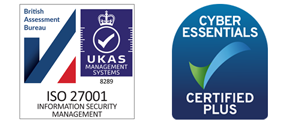
Choosing a Data Platform is not an immediate decision made like buying a book or a sandwich. It will take weeks if not months depending on factors such as what you’re going to use it for, who have you got to support it and how much it’ll cost. In addition to how it will impact your operation and business.
So we’ve listed some very simple differences to help start the topic and get the basics out of the way.
Oracle 12c - Media can be freely downloaded and the product openly available to use. However Oracle reserve the right to audit you within 30 days and charge you from the moment it went live.
MS SQL 14- A product key is required to active the product – unless you have a time limited trial version. Payment must be made upfront before you can use the software. If you have an Enterprise Agreement you can ‘true-up’ every year for an entire Microsoft Estate based on usage, but an upfront payment is still required.
Oracle 12c - Oracle has a direct sales model. You can negotiate costs directly with Oracle – alternatively go to a Channel Partner. Pricing may vary significantly depending on status of Partner (e.g. Gold or Platinum), region, volume and value.
MS SQL 14- Microsoft only sell through specific Partners. Depending on the chosen license model. Enterprise Agreements can only go through a dozen or so Large Account Re-sellers. One off copies of SQL can be purchased under an Open License plan off virtually any Microsoft re-seller. Regional pricing will vary – therefore global organisations may benefit from purchasing in APAC or the Americas depending on exchange rates.
Oracle 12c - Oracle DBA’s command higher pay than SQL DBA’s. Mainly because most FTSE/Fortune 500 organisations use Oracle for their core systems. Therefore resource and training costs will be higher than MS SQL.
MS SQL 14- SQL Server is more widely used, but by SME’s, Mid-market and Enterprise. Fewer Enterprises depend on MS SQL for their core systems than Oracle. Skills are therefore more abundant, however for Enterprise level skill sets – Architect’s and Senior SQL DBA’s can often command equivocal pay to their Oracle counterparts.
Oracle 12c - Certain popular vendors have trouble with Oracle. HP are currently in a lawsuit over the supportability with their Itanium tin. VMware is notoriously expensive to license due to Oracle’s license policy. This has led to customers having to re-architect on Oracle’s OVM Hypervisor, or having to support non-standard tin in their datacentre.
MS SQL 14- Microsoft doesn’t really do Infrastructure hardware, therefore works on most hardware platforms. They do, however sell their own hypervisor (Hyper-V) directly competing with VMware. And as such has integrated some SQL 2014 features to make it more favourable to Hyper-V. However SQL 2014 does happily work with VMware. However being software only, means more vendors and potential compatibility issues and additional support contracts/resources required. Whilst with Oracle supportability will eased by buying all Red as Oracle wants you to, Microsoft can always blame shift to the hardware vendor.
Oracle 12c - There used to be Oracle only packages – especially in the ERP and Fintech spaces. However most ISP’s have either been brought by Oracle or are compatible with both. For more complex environments, ETL processes, data warehouses, APIs etc. will all need to be considered. If it’s already Oracle, then these are usually the reason to stay oracle.
MS SQL 14- Microsoft have been gaining market share – especially in the ERP, Fintech ISP’s and Enterprise space. Therefore on paper, is now (claimed to be) an alternative to Oracle. Most ISP’s will be fine with MS SQL. It will be a client’s specific software and devOPS set-up that will be the bigger factor than the vendor.
Oracle 12c - Oracle has its own set of High Availability and Disaster Recovery packages; namely Oracle RAC and DataGuard respectively. These are sold separately and require Enterprise Version. It is critical to define HA and DR needs early in architecture discussion for this reason. Incorrectly architected Oracle environments could mean the difference between a 16k License bill and a 260k license bill – so it’s essential these are spec’d according to how it will – or planned to – be used. Formal documentation around Architecture is essential for this very reason.
DSP is a Data Management and Cloud Platform MSP that delivers enterprise grade support & consulting services for Oracle, Microsoft and Multi-Cloud technologies.
.png?width=250&height=99&name=Partner-logos-rectangle-colour-Nov21%20(2).png)
